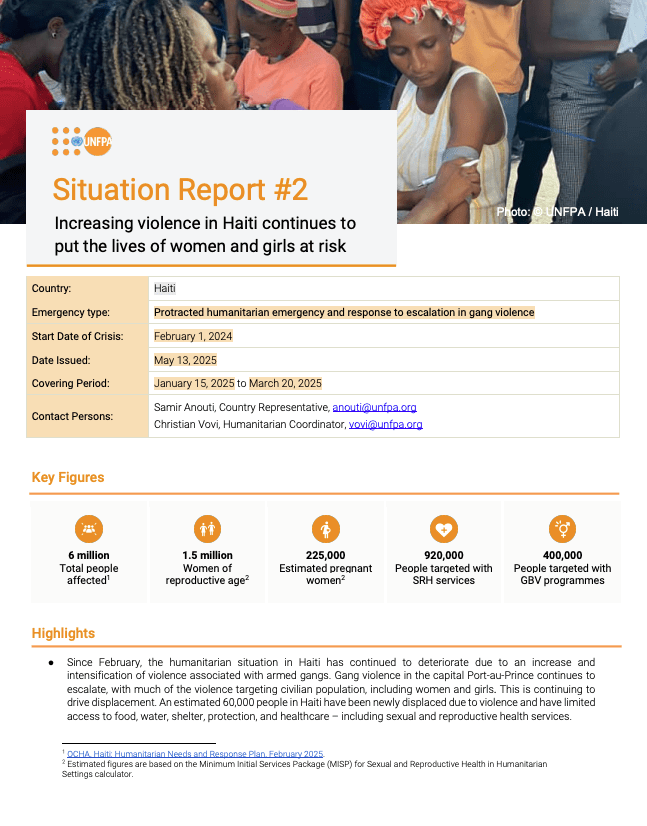
Since February 2025, the humanitarian situation in Haiti has continued to deteriorate due to an increase and intensification of violence associated with armed gangs. This is continuing to drive displacement, with an estimated 60,000 people in Haiti having been newly displaced. Thousands of women and girls who have fled their homes and are now living in makeshift shelters, where they face increased risks of sexual exploitation and abuse. Many of those displaced have limited access to basic services, including sexual and reproductive healthcare, with reports of women giving birth without any medical assistance.
The operating environment continues to pose challenges with high security risks, which limit humanitarian access to some areas, including displacement sites, and impact service provision. The recent attack around the UNFPA-supported women and girls’ safe space (WGSS) located in Delmas 19, resulted in the suspension of activities for two weeks before the WGSS was reopened at a new location in Delmas 41. Although activities have recommenced, between 450-580 women and girls who were previously attending the WGSS in Delmas 19 are unable to access the new safe space because they are dispersed due to armed gang attacks.
Despite the challenges, UNFPA and its implementing partners have remained and continue to provide life-saving sexual and reproductive health (SRH) services and gender-based violence (GBV) prevention, mitigation and response activities. Between mid-January to mid-March, UNFPA supported six health facilities and three WGSS’s; have distributed 200 mama kits and 1,850 dignity kits; and provided remote psychosocial support, referral, case documentation and GBV information via a hotline.
UNFPA is appealing for US$28.9 million to strengthen and expand access to life-saving SRH and GBV services in Haiti in 2025. As of March, the total amount received was US$2.6 million, representing only 8% of the required funding. With the needs escalating in Haiti, additional funding is urgently required to ensure these critical services are available for women and girls.

